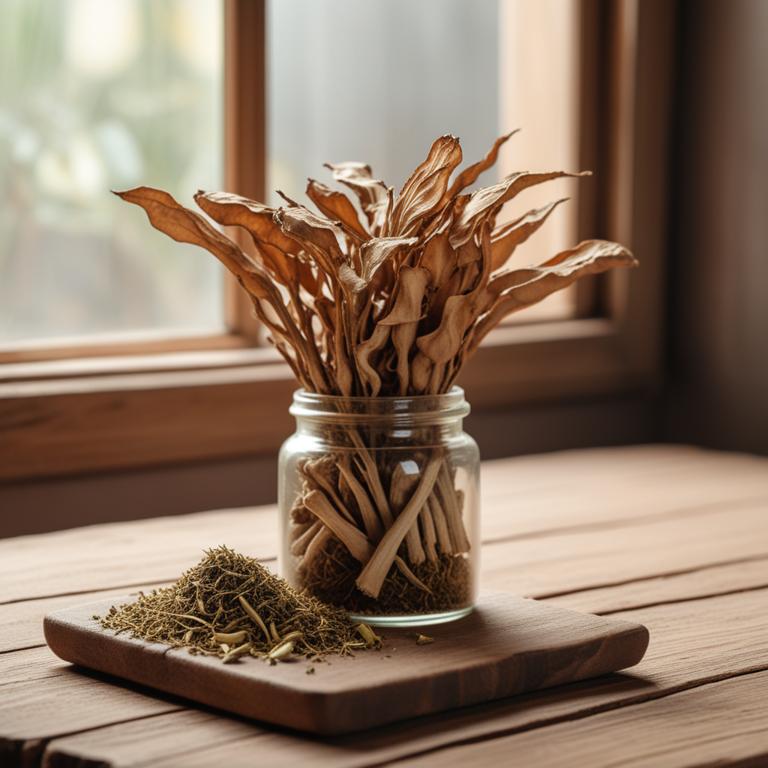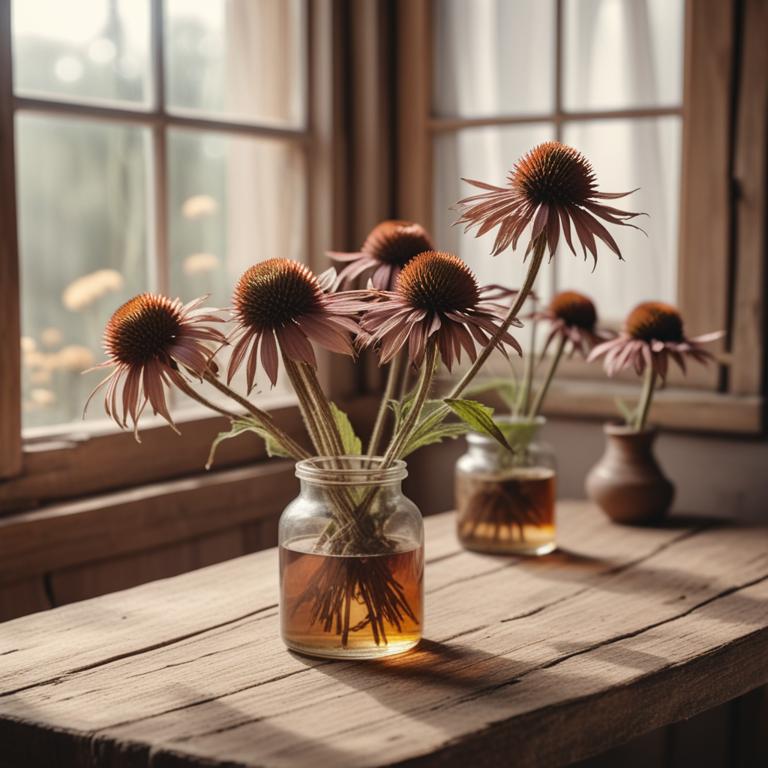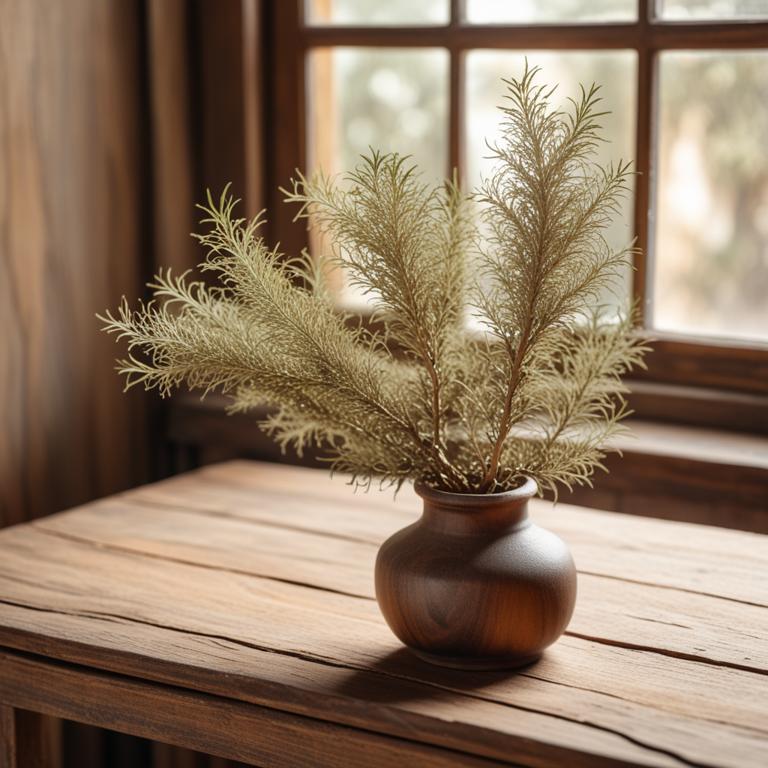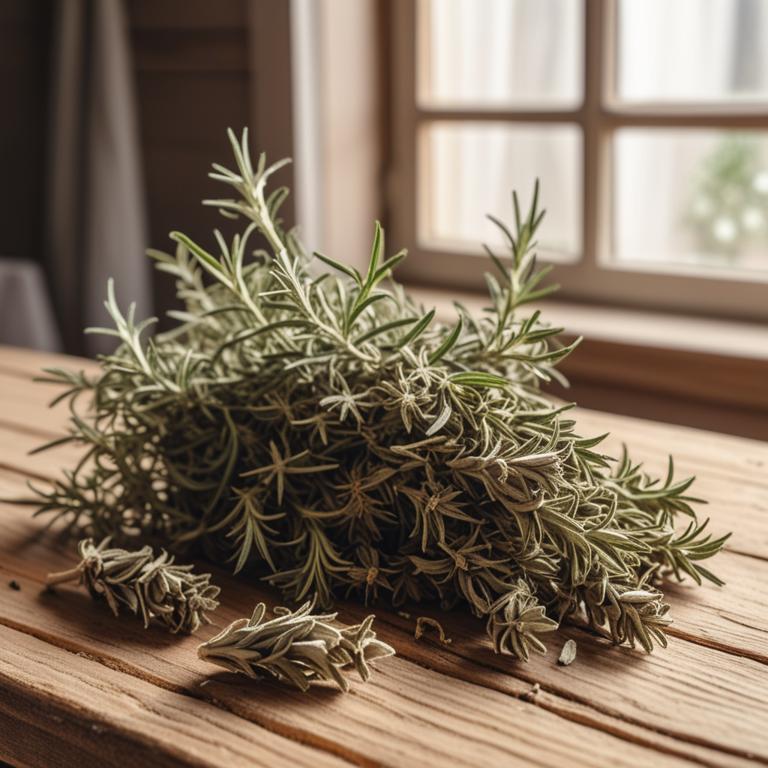Updated: Dec 1, 2024
Effective Medicinal Herbs and Herbal Preparations to Prevent Hair Fall
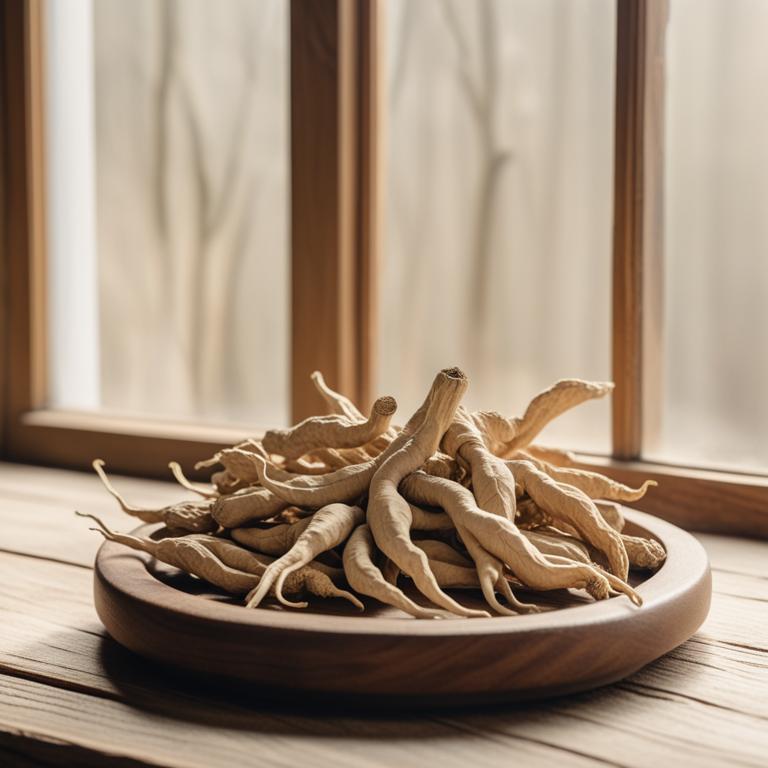
Hair fall is a common issue that affects many people.
It's not just about the way you look; it can also affect your confidence and daily life. Hair fall can be caused by a variety of factors such as stress, genetics, poor diet, and environmental factors like pollution and heat styling. When we experience hair fall, it can be frustrating and emotionally challenging. To address hair fall, herbal remedies can be a great option.
Certain herbs like amla, bhringaraj, and neem have been traditionally used to promote hair growth and strengthen hair follicles. These herbs have antioxidant and anti-inflammatory properties that can help to nourish the scalp and promote healthy hair growth. You can use these herbs to make teas or infusions that you can drink to promote hair growth from the inside out. You can also use them to make topical preparations like hair oils or masks that you can apply directly to your scalp. For example, you can make a tea by boiling amla and neem leaves in water and then use the cooled tea as a hair rinse.
Alternatively, you can mix bhringaraj oil with other oils like coconut or olive oil and apply it to your scalp as a hair mask.
Table of Contents
What factors cause hair fall?
The main causes of hair fall are numerous, but some of the most common ones include genetics, hormonal imbalance, stress, poor diet, anemia, and thyroid issues.
Genetics play a significant role, as people with a family history of hair loss are more likely to experience it themselves. This is because hair growth and loss are determined by multiple genes working together. Hormonal imbalance, particularly an excess of dihydrotestosterone (DHT), can cause hair follicles to shrink, leading to thinner and shorter hair.
Stress can also cause hair loss, as it can disrupt the normal growth cycle of hair, causing it to fall out more than it would normally. A poor diet lacking essential nutrients like iron, zinc, and biotin can also contribute to hair loss, as these nutrients are crucial for maintaining healthy hair growth. Anemia, a condition characterized by a lack of red blood cells or hemoglobin, can lead to hair loss due to the reduced oxygen supply to the hair follicles.
Lastly, thyroid issues, such as hypothyroidism, can cause hair loss due to the reduced production of thyroid hormones, which are necessary for regulating metabolism and hair growth.
What advantages accrue from using herbs to prevent hair fall?
Using herbs for hair fall can be really beneficial for your hair and scalp.
One of the main advantages is that they are natural and gentle, which makes them perfect for sensitive scalps. These herbs can help to reduce inflammation and promote a healthy scalp environment, which can lead to a decrease in hair fall.
They can also help to stimulate blood flow to the scalp, which can promote hair growth and strengthen hair follicles. Additionally, herbs can help to balance the pH level of your scalp, which can prevent irritation and itchiness. By using herbs, you can also reduce your reliance on chemical-based hair care products, which can be harsh on your hair and scalp.
Furthermore, herbs can help to nourish and moisturize your hair, leaving it looking healthy and shiny.
Which herbs are commonly used to prevent hair fall?
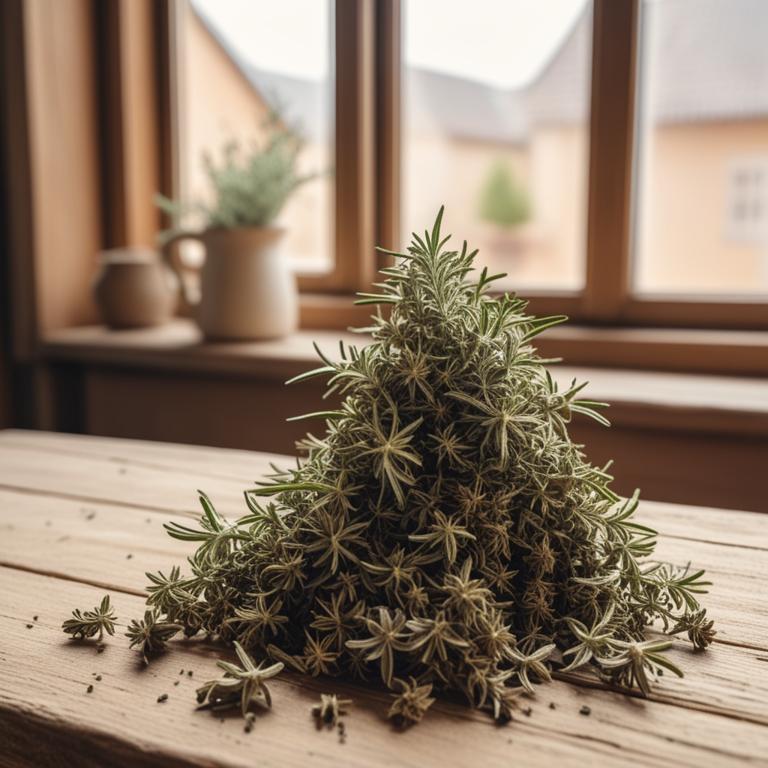
Herbs have been used for centuries to promote hair growth and reduce hair fall.
Let's take a look at some of the most effective ones. Rosmarinus officinalis, also known as rosemary, is a great herb to stimulate hair growth. It improves blood circulation in the scalp, which helps to deliver essential nutrients to the hair follicles. This results in stronger and healthier hair. Aloe barbadensis, or aloe vera, is another herb that's beneficial for hair. It has anti-inflammatory properties that help soothe the scalp and reduce dandruff and itchiness. This creates a healthy environment for hair growth. Moreover, aloe vera has antioxidants that protect the hair from damage caused by free radicals. Curcuma longa, or turmeric, is an herb that's been used in Ayurvedic medicine for centuries. It contains a compound called curcumin, which has anti-inflammatory and antioxidant properties.
Curcumin helps to reduce inflammation in the scalp, which can lead to hair fall. It also helps to improve the texture and strength of the hair. Urtica dioica, or nettle, is another herb that's good for hair. It has anti-inflammatory properties that help to soothe the scalp and reduce dandruff and itchiness. Nettle also helps to improve blood circulation in the scalp, which delivers essential nutrients to the hair follicles. Cassia auriculata, or cassia, is an herb that's commonly used in Ayurvedic medicine. It has antioxidant and anti-inflammatory properties that help to protect the hair from damage caused by free radicals. Cassia also helps to improve the texture and strength of the hair, making it less prone to breakage and fall. These herbs can be used in various forms, such as essential oils, extracts, or powders. They can be applied directly to the scalp or used as a hair mask.
It's always a good idea to consult with a doctor or a dermatologist before using any new herbs, especially if you have sensitive skin or allergies.
What are the most popular herbal treatments for hair fall?
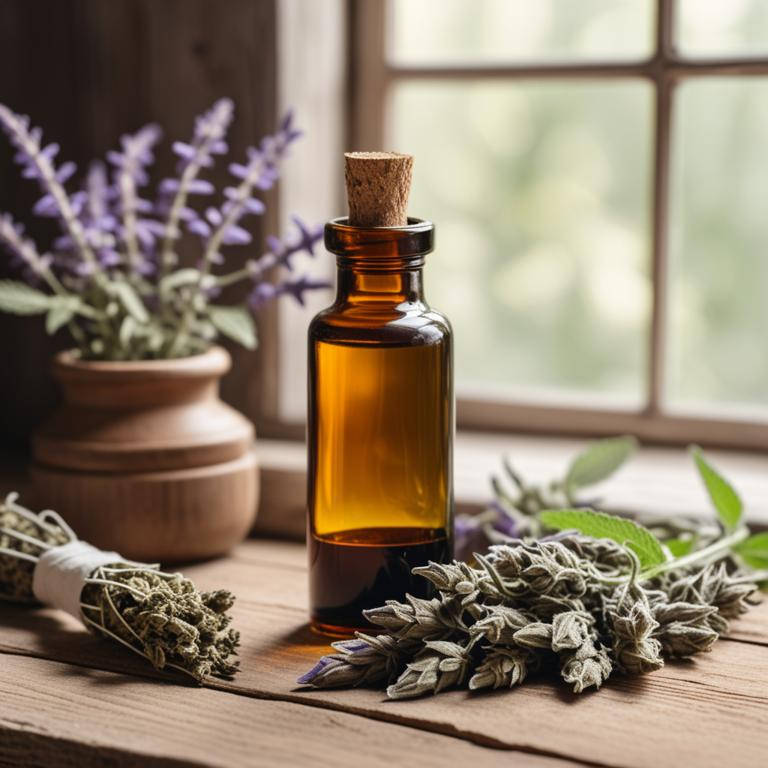
Herbal preparations can be very helpful in reducing hair fall.
One way to use them is by making an oil preparation. This is done by infusing herbs in a carrier oil like coconut or olive oil. The herbs can be easily absorbed into the scalp through the oil, nourishing the hair follicles and promoting healthy hair growth. Another option is using a tincture, which is a concentrated liquid extract of herbs. Tinctures can be applied directly to the scalp or mixed with water to create a spray that can be used as a scalp treatment. You can also make a decoction, which is a liquid preparation made by steeping herbs in hot water.
Decoctions can be used as a final rinse after shampooing to add extra nourishment to your hair. Herbal capsules are another option, which contain dried and powdered herbs that can be easily taken as a supplement. These can provide essential nutrients and vitamins that promote hair growth from the inside out. Some herbal shampoos are also available, which can be used like regular shampoos but with the added benefits of herbs. These shampoos can help to nourish and strengthen your hair, reducing the risk of hair fall. It's worth noting that when using herbal preparations for hair fall, it's best to choose products that are specifically designed for hair care. You should also consult with a healthcare professional or a qualified herbalist to ensure that the herbs you are using are safe and effective for your individual needs.
Additionally, be patient and give your hair time to respond to the treatment, as results may take some time to appear.
Additional Resources:
Can you tell me which herbs to avoid if you have hair fall?
If you're experiencing hair fall, it's a good idea to be cautious with certain herbs that might actually make the problem worse.
For instance, taking Zingiber officinale, commonly known as ginger, in large amounts can lead to hormonal imbalances that may cause hair loss. This is because ginger contains compounds that can stimulate the body to produce more testosterone, a hormone that can contribute to hair loss in both men and women.
Zanthoxylum bungeanum, a type of prickly ash, is also something to watch out for as its active compounds can increase the risk of hair loss by causing inflammation in the scalp. Glycyrrhiza glabra, also known as licorice root, contains a compound called glycyrrhizin, which can raise blood pressure and lead to hair loss due to the increased tension on the hair follicles. Eucalyptus globulus, a popular herb for its decongestant properties, can dry out the scalp if used excessively, leading to irritation and potentially even more hair loss.
Ginkgo biloba, known for its memory-boosting properties, can also have an adverse effect on hair growth as its active compounds can cause an imbalance in the body's natural thyroid function, which is crucial for hair growth.
FAQ
Are there any specific herbs that can prevent hair fall?
Basil and rosemary are herbs that may help prevent hair fall.
They contain antioxidants that promote hair growth and strengthen hair follicles. Basil also helps to balance hormones, which can contribute to hair loss.
Regular use of these herbs can lead to healthier and thicker hair.
Is it safe to use herbal remedies for hair fall during pregnancy?
During pregnancy, it's best to be cautious with herbal remedies for hair fall.
Some herbs, like saw palmetto and biotin, might be safe, but others, like pennyroyal and blue cohosh, have potential risks.
Always check the ingredients and follow the recommended dosage to minimize any possible harm to you and your baby.
Are there any herbs that can reduce the frequency of hair fall?
Some herbs like saw palmetto and rosemary may help reduce hair fall.
Saw palmetto is thought to block the conversion of testosterone to dihydrotestosterone, a hormone that can contribute to hair loss. Rosemary is believed to improve circulation to the scalp, promoting healthy hair growth.
These herbs may also help strengthen hair follicles.
Can i combine different herbal remedies for hair fall?
You can combine different herbal remedies for hair fall, but be cautious.
Mixing too many remedies can be overwhelming for your body. Start with one or two that you're familiar with, like saw palmetto and biotin.
Add another one or two after a few weeks to see how your body reacts.
Related Articles
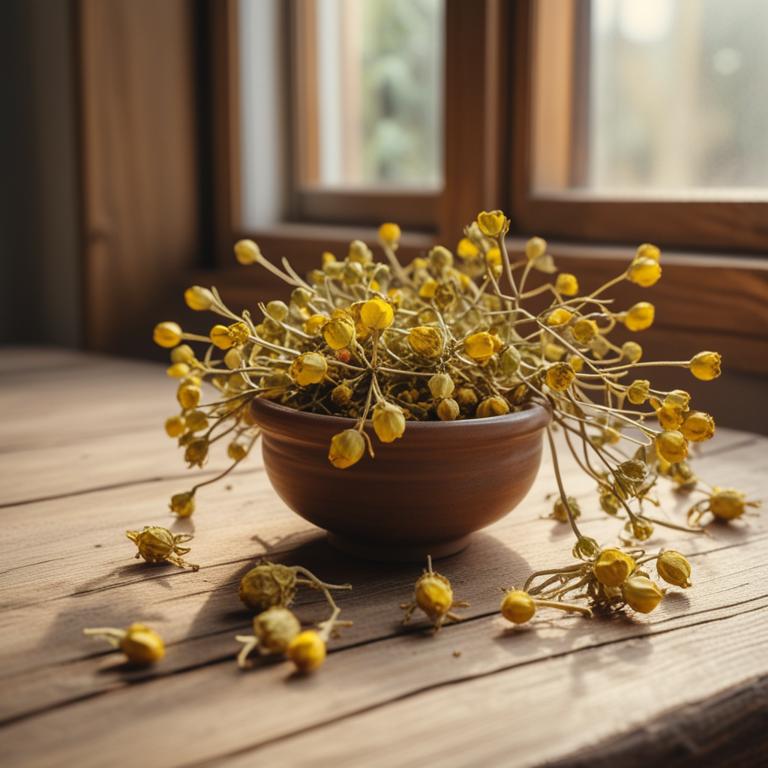
Bee Sting Natural Relief: Causes, Herbal Remedies, and Home Care
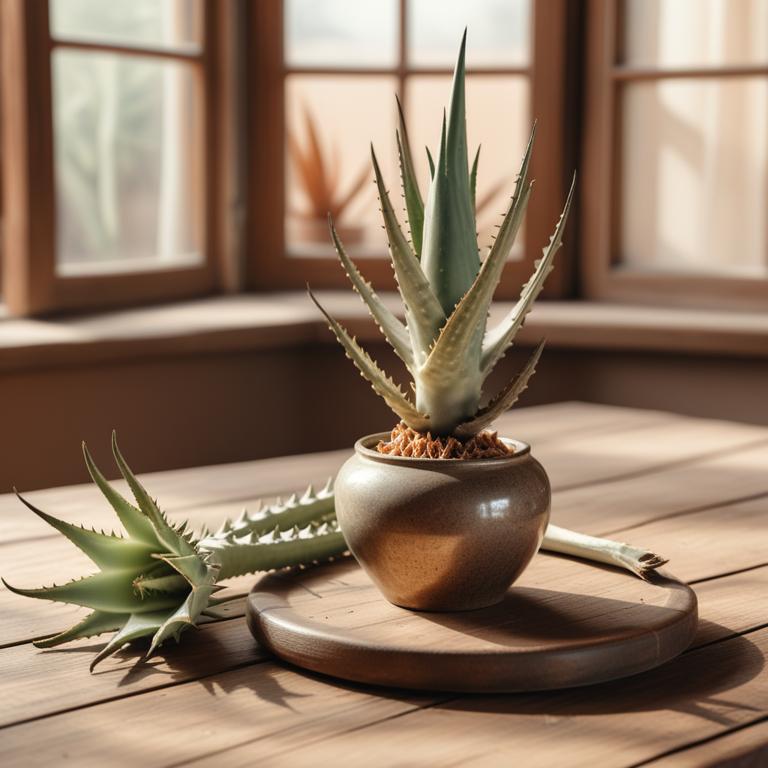
Chapped Lips: Causes, Medicinal Herbs, and Natural Preparations for Soothing Relief
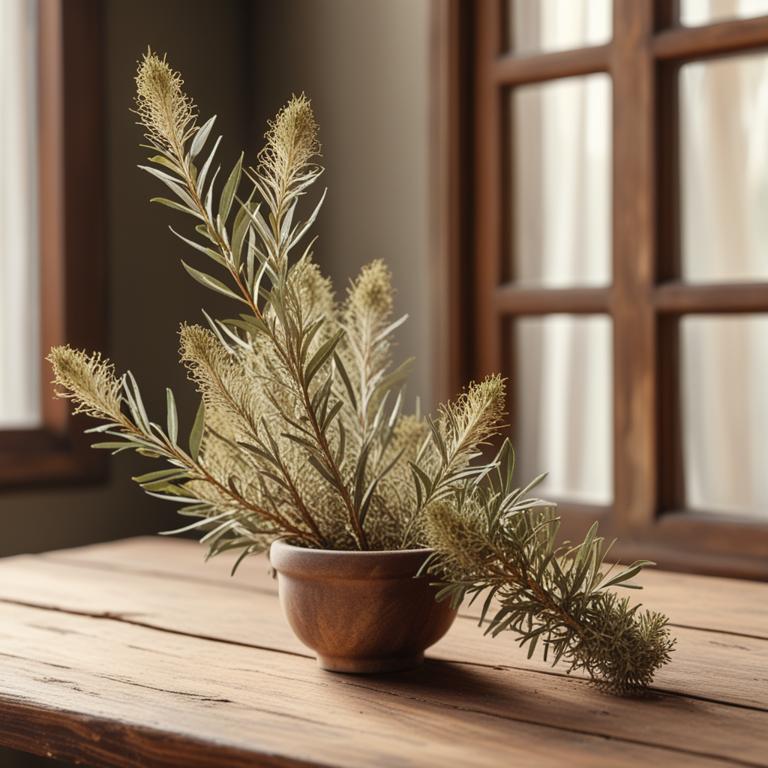
Sunburn Treatment Options: Medicinal Herbs, Herbal Preparations, and Natural Remedies
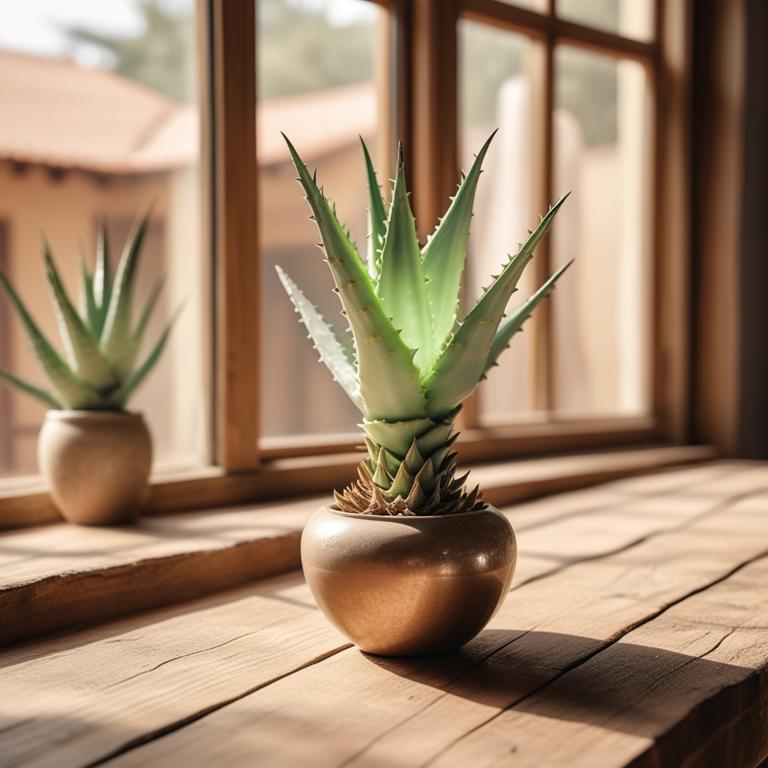
Jock Itch Causes, Symptoms, and Herbal Preparations for Relief
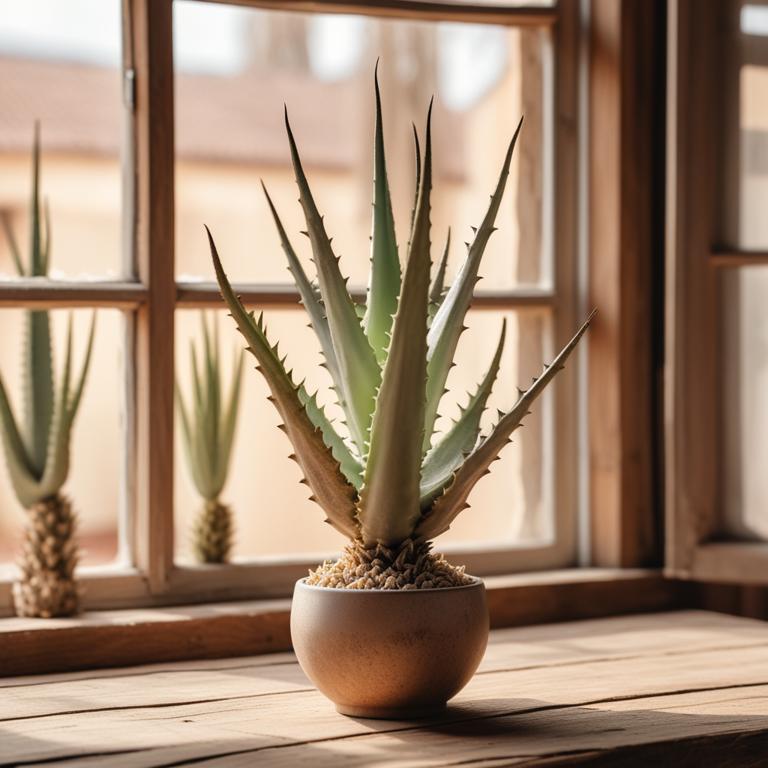
Causes and Remedies of Burning Feet: Medicinal Herbs and Herbal Preparations
